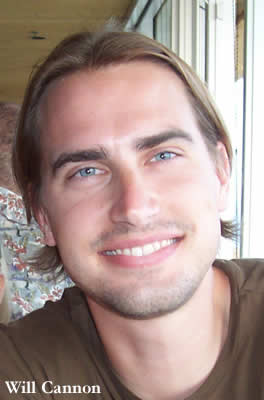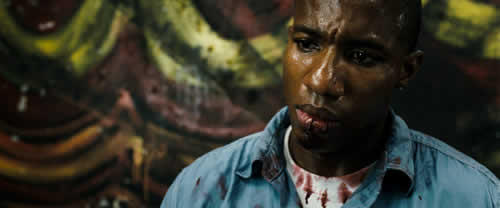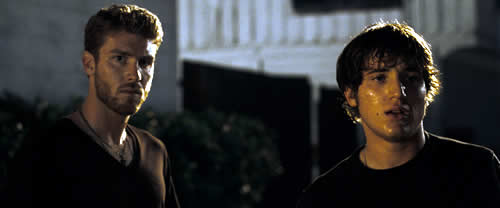 In Brotherhood, Adam Buckley finds himself having to rob a convenience store on the last night of pledging a college fraternity. But when the initiation ritual goes horribly wrong, and every subsequent move proves disastrous, Adam must take a stand to save a friend’s life.
In Brotherhood, Adam Buckley finds himself having to rob a convenience store on the last night of pledging a college fraternity. But when the initiation ritual goes horribly wrong, and every subsequent move proves disastrous, Adam must take a stand to save a friend’s life.
Will Cannon, director of Brotherhood is an honors graduate of New York University’s film program. While at NYU, he wrote and directed the award winning short film ROSLYN, which has aired on Showtime, The Sundance Channel, and HBO International. ROSLYN was selected as a semifinalist in Chrysler’s Million Dollar Film Festival where Will traveled to France to make his next short, AIR JESUS, for Chrysler, Hypnotic, and Universal Pictures. Will was then selected to participate in the prestigious Fox Searchlab, the new directors lab at Fox Searchlight Pictures where he had a first look deal and completed his next film, YOUNGSTER. YOUNGSTER has been in over fifty film festivals worldwide and was recently sold to Shorts International. BROTHERHOOD is based on Will’s short film, ROSLYN, and is his first feature film.
Bijan Tehrani: After making a short film on the same subject for Brotherhood, years ago, how did you come up with the idea of making it into a feature film?
Will Cannon: My writing partner, a guy named Doug Simon, had worked on a short film as a cinematographer. In the years since then, we had started writing together and working on things together. The short film had done really well on the film festival circuit; it had won a few awards and it was sold to Showtime and a few different outlets internationally. It was something that we always had kind of talked about and we had a couple of ideas of how to turn it into a feature length and some of those ideas really got us excited. For me, the writing part of it is always the trickiest and toughest, so when you have a story and ideas that are already decided,  then it makes things a little less difficult and you are kind of already set to take off.
then it makes things a little less difficult and you are kind of already set to take off.
BT: How challenging was it to make Brotherhood?
WC: It was definitely challenging. It took about six years from the time we started working on the script to the time that the film was released, and the project was originally set-up to be made at a bigger production company on a much bigger budget, but it just wasn’t working creatively and we were able to get out of that situation. The producers were able to then raise money for the film independently and that process took about two years. So the financing process is always so difficult, but with us I was lucky to have people working with me on the project that were very passionate about it, so we just kept going and everyone just had the feeling that we were going to get this done and we just had to find the way to do it.
 BT: How did you go about casting the film?
BT: How did you go about casting the film?
WC: We had a casting director named Michelle Gert, and the first person that I really saw was Trevor Morgan. I saw Trevor in a movie called Mean Creek and I really loved his performance in that film, so he was on my mind; Michelle set up a meeting where Trevor and I were able to meet and we just got along great and I thought that he was fantastic for the movie. Trevor and Lou Taylor Pucci were friends, and so we started talking to Lou about possibly doing the film, and then Lou and Jon Foster were also friends and had just done a film called The Informers together. So, it just worked that these guys were all friends and it got me really excited and it got them excited about working together.
BT: How did you come up with the visual style of Brotherhood?
WC: I always kind of knew that I wanted it to have an edgy and gritty kind of feel to it. When I started to talk to my cinematographer and we talked about films that I liked and how we could emulate their style, we spoke of films that were really dark and gritty and had the texture and flavor that we wanted.
 BT: Were the actors allowed to improvise during shooting?
BT: Were the actors allowed to improvise during shooting?
WC: Most of it was close to the script; there were a few places where we improvised, but in this film there is just so much information that had to be conveyed. There was one scene in particular where Lou Pucci discussed where he felt his character needed to say more, and I just let him run with it.
BT: How much of this film was shaped in the editing room?
WC: I think a lot of the film was shaped there. I wanted the film to be really fast and I wanted the film to have a real intensity to it, and when you shoot it, that really comes down to the timing and the editing. So, for us the editing was really important.
BT: Do you have any other projects lined up?
WC: I’m finishing up a script for another thriller with Doug Simon, who I wrote Brotherhood with. There are a few other projects that have been brought to my producer, and I’m looking forward to them.
BT: We appreciate you taking your time to speak to us and providing our readers with your thoughts!
